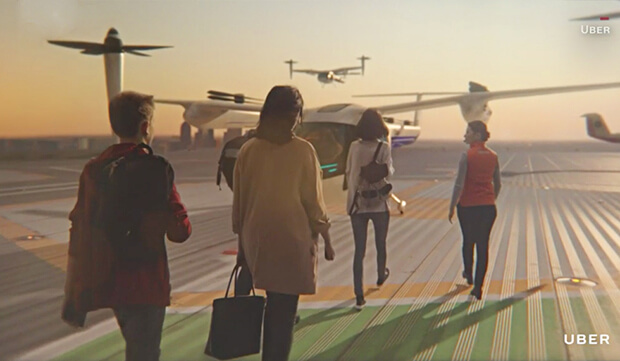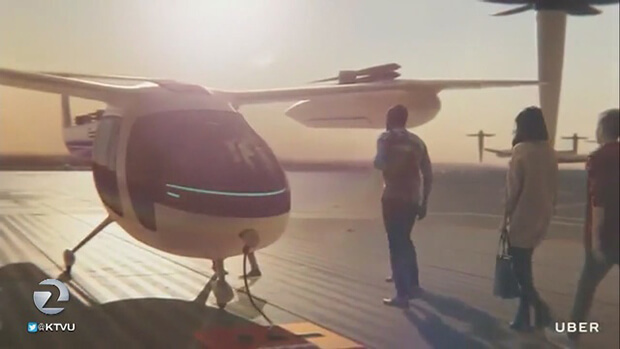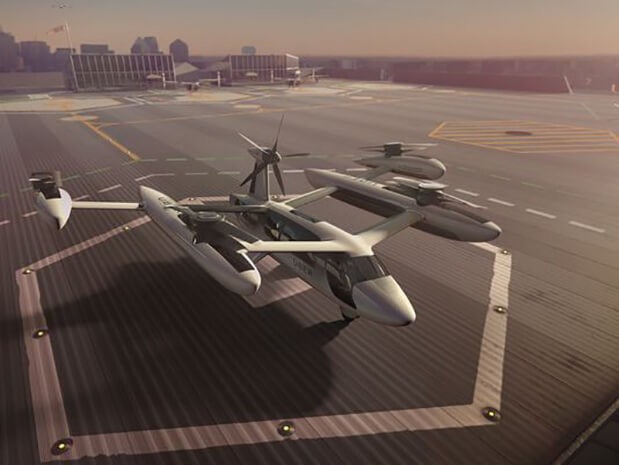Uber teams with NASA to make flying cars

Uber is teaming up with NASA to simulate flying taxis in urban areas.
Back in 2016, Uber unveiled their plans to develop electric flying cars so as to help improve transportation in cities and to alleviate congestion as well as providing affordable air transportation.
NASA became a partner for the program in 2017 by developing air traffic management for a fleet of flying cars, but now NASA wants to help get the concept off the ground even more.
Uber has revealed that they will share their plans for a ridesharing network of flying cars with NASA, which in turn, will conduct simulations. NASA's findings will help guide the creation of industry standards and regulations which the US government can introduce.

The two companies hope commercial trips will be available in 2023. Rides will be booked within the Uber app, similarly to how someone selects a ride in a car or SUV.
The aircraft are technically referred to as VTOL, or vertical takeoff and landing vehicles similar to helicopters but Uber believes its concept will be safer and cheaper than what's already available at this time.
On the Uber flying car, the propellers face upward like a helicopter's main blade, and another one is positioned forward like a plane. ARK Invest industry innovation analyst Sam Korus told CNNMoney.
"It's a simpler design compared to what we've seen from Uber before. This could lead to a safer vehicle,"

Uber isn't the only company eyeing the skies. Competitors developing similar technology range from aviation giant Airbus to startups backed by Google co-founder Larry Page.
It may still be a few years away yet but flying cars will need to safely operate in crowded airspace, near small drones and traditional aeroplanes. The safety of flying cars will need to be proven, and regulations will need to be developed. The partnership between Uber and NASA is an early move toward figuring out regulations. NASA associate administrator Jaiwon Shin said in a statement.
"Urban air mobility could revolutionize the way people and cargo move in our cities and fundamentally change our lifestyle much like smart phones have,"


Author

Justin Kavanagh
Justin Kavanagh is a recognised leader
in automotive intelligence and vehicle
data supply to the entire motor industry.
He has almost 20 years experience in
building systems from the ground up.
As the Managing Director of Vehicle
Management System, he understands the
need and importance of trustworthy and
reliable vehicle history and advice to
both the trade and the public.
Follow me on LinkedIn